The poverty industry. Reinforcing destitution and economic ruin wherever it plants its well heeled foot. The spin is all about helping the poor reach empowerment. Ending the viscous cycle.But really, as Thorstein Veblen observed over a hundred years ago, most of charitable giving is all about authenticating the feeling of superiority by invidious comparison between the giver and those they help. Charity then, is seen as a measure of worth more significant than the act of giving. To play at philanthropy is part of a mandatory code of decency. In addition, charitable scandals, extravagance and ineffectiveness is all, somewhat perversely, part of conspicuous waste, meaning that only could be attained by great means and prestige.

---Recently, she completed a personal project to match photographs taken during her travels to the John Lennon song, “Imagine.” Tim Irwin, UNHCR’s communications officer in Washington, DC, recently spoke to Mia Farrow about the project. What was your idea behind making this project? I have taken a lot of photographs over the years – some of them on trips with UNICEF, some of them on my own journeys – and I was listening to the song at the time that would have been John Lennon’s 70th birthday. I came to the line, “Imagine no possessions, I wonder if you can,” and I went to some of the photographs where it didn’t require imagining for me. I’ve witnessed people with nothing. And then I thought: Was there something I could put together? I think the song is such a beautiful song, in its message, in its melody. I chose the pictures to go with the lyrics. I had returned from Uganda with UNICEF and I wanted to bring it emotionally to the destructive forces that have displaced all the people in the photographs. And I wanted to end with the dreamer and the thought: “If only the world could live as one.” Read more: http://www.looktothestars.org/news/5576-mia-farrows-tribute-to-charity-and-john-lennon#ixzz1ctHQfXuI
Veblen called charity an investment in good name. A pecuniary respectability with respectability excluding responsibility and inseparable from an expensive scale of living. Charity simply put, is another element of conspicuous leisure; a marker of status that exists for show, not designed for getting results that are tangible- a poster children- or productive value from the giving. That is, the givers receive and enjoy the privilege of honor and prestige through waste. Said Veblen, “in order to be reputable, it must be wasteful.”
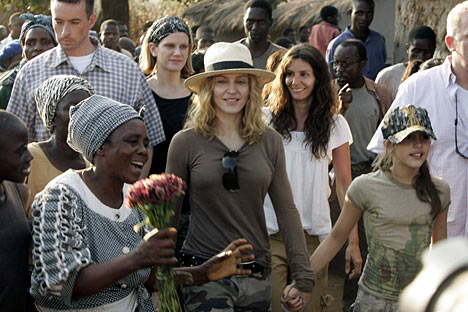
---I say ill-conceived because if this project was properly structured, with vigorous oversight, then 3.8 million dollars would not have vanished. Who is to blame? Surely the Executive Director, Philippe van den Bossche, who became involved with Madonna’s trainer, Tracy Anderson, in the middle of the project. Now it makes sense why Madonna fired her “celebrity trainer ass“. Now, someone tell me how a 15 million dollar project allows for a 3.8 million dollar loss…with nothing to show for it? Were all the egos involved so large that no one could see the forest from the trees? And wait, much of that 3.8 million went to architects and designers according to Page Six. Excuse me, we’re talking Malawi here not the Miami Design District. Does Malawi need some pretentious design vomit or a clean, safe building to teach the girls in? Sounds like gross, egregious highway robbery to me.---Read More:http://imeanwhat.com/breaking-newzzz/madonnas-malawi-scam
…Also, plenty of individuals make money out of poverty: poverty studies, conferences, government initiatives, NGOs, make it a huge industry. The answer to Carlos Slim is employment, a work which dignifies the receiver by providing an emotional need. But, the charity structure appears oriented toward dependency, somewhat like the War on Drugs, the more cash thrown at it, the greater the problem. Psychiatrist Victor Frankl once asserted that charity provides a central source of human meaning and a means towards enlightenment, but he certainly did not have the post-modernist context in mind. Ultimately, we come back to Veblen’s enduring argument that it is not the act which is important,
rather the motivation within the apparatus of the social and cultural structure that surrounds the donor. Veblen’s thesis, with respect to charitable giving then, implies it is not the act of charity itself that is worthy of study, or the potential beneficiaries, but the established structural basis for the underlying motivation of the donor, or philanthropist behind the charitable act whether George Soros or the girl guide cookie drive…
From Rick Salutin, Toronto Star: You may have noticed that the Globe and Mail invented charity last weekend in response to various irritations: economic chaos, rage-inducing social inequality, declining living standards, loss of hope. Their answer is the New Philanthropy though, in fact, it isn’t really new and isn’t philanthropy either. I’ll get to that.
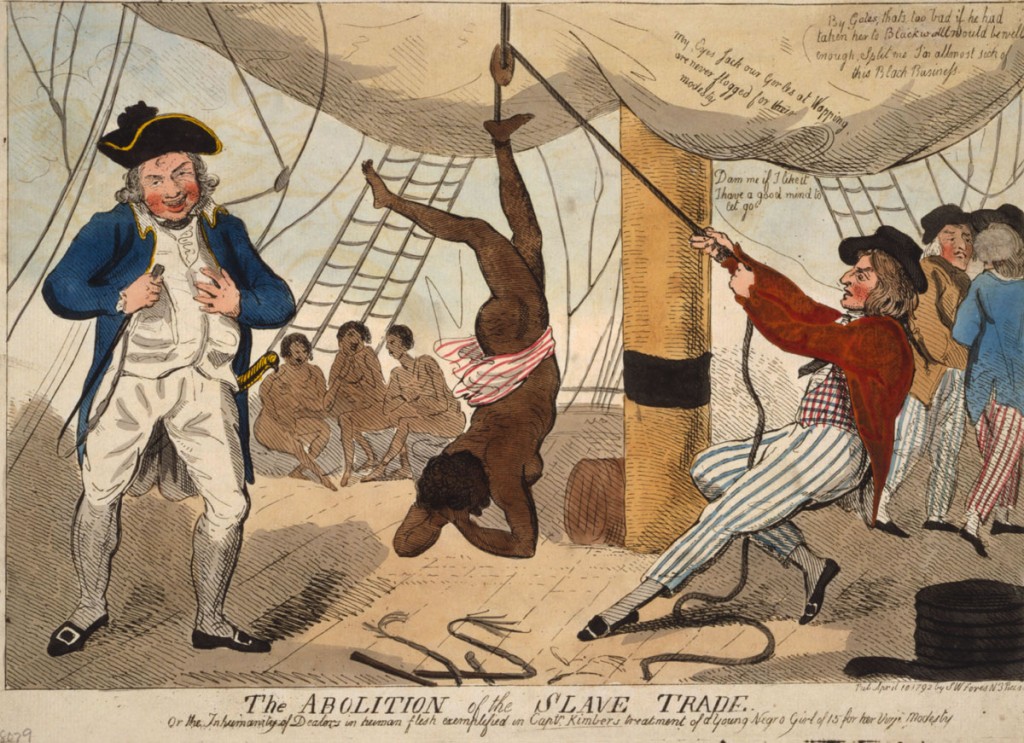
---Your title, Broke, USA, suggests the industry has a broad reach — not just the poor and working class, but even the middle class? Race doesn't make much difference. Geography doesn't make much difference. These folks are the great white sharks, happy to feed off any fish they come across. It comes down to greed, not racism. It reminded me of drug dealers. Payday lenders use a first-one free kind of come-on. To get people addicted. It's so easy. Use this to balance your checkbook. That's a really expensive way to balance your checkbook.---Rivlin----Read More:http://news.change.org/stories/exposing-the-poverty-industrys-profiteers image:http://jsench.wordpress.com/
The Globe explores the nature of the problem with a combo of the way they report natural disasters (“fiscally restrained governments confront rising need created by economic turmoil” — as if those governments hadn’t restrained themselves and created the turmoil through their tax-cut and deficit fixations); plus the way they spot fashions, quick like a bunny, before other MSM get there (“It is generally accepted in these more conservative times that the market allocates resources more efficiently than the state.”) Hey, it’s a trend.
Their solution is the New Philanthropy exemplified by Bill Gates and others who receive beatific thumbnail profiles. Yet Gates’ foundation, which dwarfs all others, only dispenses, at most, $3 billion per year — a pittance compared to the need. In Cannes this week, Gates himself called for a “Robin Hood” tax on speculation that would add $48 billion per year to fight poverty. He knows the scale involved.
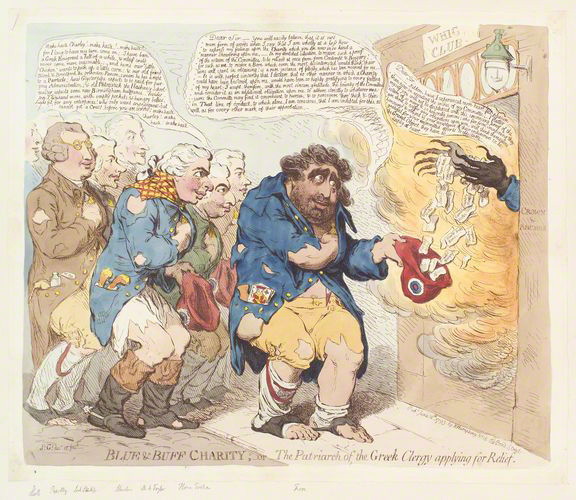
---Žižek, a proud misanthrope, explains that charity is now the basic constituent of our economy, and notes that "this cheap, charitable optimism" is naive -- charitable acts do not solve pressing social issues, they merely prolong them. "I'm not against charity -- my God! In the abstract sense, of course, it's better than nothing. But let's be aware that there is an element of hypocrisy there." Charity is admirable, but it is also misdirected, because charitable giving doesn't address the root causes associated with social problems. Like a grizzled, lifelong social entrepreneur, Žižek demands that we do something more: change the systems.--- Read More:http://www.changemakers.com/blog/the-ethical-implications-of-charity-first-as-tragedy image:http://www.npg.org.uk/collections/search/portraitLarge/mw63482/Blue-and-buff-charity---or---the-patriarch-of-the-Greek-clergy-applying-for-relief
But he has leveraged those paltry sums into big influence on his chosen issues. (The old foundations rarely imposed their will that way.) In education, for instance, he’s demanded accountability based on standardized tests, since he’s an engineer (as the Globe notes) and requires a “reliable set of metrics to quantify social impacts.” The results have been, it is now emerging, disastrous: undermining teachers, many of whom
t, cheating scandals, seeding his own people in school boards and education departments.Other elements of the NP include “social impact bonds,” in which investors more or less bet on programs like convict rehab or (I swear) obesity reduction and reap profits from public savings if the programs work. Pardon me while I retch. Does this not remind you of the “instruments” and other bright ideas — CDOs, credit swaps — imagineered by hedge funds that led straight to the bailout hell aftermath that we currently inhabit?
The Globe say these methods “could revolutionize” social programs by creating “a world in which profit motives and the greater good move in tandem.” That would revolutionize us all the way back to Dickens’ time — take the hideous school for orphans squeezed for profit by Squeers in Nicholas Nickleby. For that matter, the Gatesian obsession with numbers and stats is perfectly anticipated by Mr. Gradgrind in Dickens’ Hard Times. Good title but hardly “New.” 1854 in fact….

---Asking the people of the UK or any other country to help is just ridiculous. Today I read an article in the Daily Express written by Peter Allen. He reports, Foreign aid has helped fund African dictators buy luxurious properties in Paris totallying £100′s Millions. Do I need to say anymore? Anyone sending money to these African Countries should ask why and stop immediately. You’re ot being given the full story by individuals on a mission to do what exactly. Feed the World may have provided the awareness to the problems these African Countires have but believe it was a fix then you are badly mistaken. Nothing was fixed. It just raised the profiles of individuals responsible for guiting other individuals to make donations to buy African leaders a luxorious lifestyle. This is a question of who is responsible for saving the lives of the people in any one Country. interferring in the culture of other countries has only ever caused conflicts since day 1.---Read More:http://www.humanbehaviour.co.uk/africa-charity-hypocrisy image:http://www.londonlives.org/static/PoorLawOverview.jsp
As for Philanthropy, it literally means love of man, or humanity. You don’t sense much of that in the New version, though there’s lots of self-praise, and a sense of power through the ability to micromanage the effect of your donation.
The Old Philanthropy, aside from a few big foundations that now look modest, was embodied in wealthy people who went on boards like the United Way. They led by their own contributions, and worked with the social agencies involved, while encouraging ordinary people to give in their workplaces, schools, churches etc. That model has faded as the social gap widened. Fewer people can afford to contribute. Only 23 per cent of Canadians now report donations on their tax returns. It’s a record low. The old model really built community; the United Way was once even called Community Chest, which you still see on Monopoly (the game) boards. Community scarcely figures in the new model. You get the rich, noble few and the wretched, competing recipients….
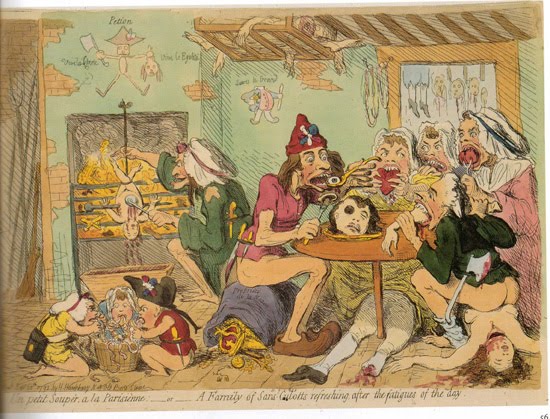
---It seems the same empowered people keep showing up to control every pot of empowerment funding. Maybe part of the reason there’s so little left for the poor is because there are so many “helpers of the poor” who help themselves to the money before it ever reaches the poor. The annual budget of the Social Planning Council last year was close to a million dollars. How much money could it take to remind everyone that people are still poor? Or that there is only a select, self-congratulating crew of buddy-buddy agencies truly equipped to understand the complexity of the issues and address the “causes” of the problems? But even if the poor stay poor and the homeless stay homeless, there’s always more grant money for new self-empowering research. Governments keep funding franchised programs to serve the disenfranchised. --- Read More:http://www.takeonwpg.com/2011/03/more-myths-from-the-poverty-industry.html image:http://whatisviscom.blogspot.com/2011/03/french-revolution-and-james-gillray.html
…What was bad in the old version of charity was that it reinforced the sense of distance and difference between givers and givees. What was good about it is that it injected an element into public activity not tied to the dominant economic system through the profit motive; the old charity was predicated instead on fellow feeling, human solidarity and even, gulp, love. The New Philanthropy, which is basically even older than the old kind, reintroduces an appeal to narrow self-interest in the form of greed, a jacked-up component of control, and narcissism in the form of fawning media reflections. Whoopee. Read More:http://www.thestar.com/opinion/editorialopinion/article/1081124–salutin-new-charity-same-old-canta
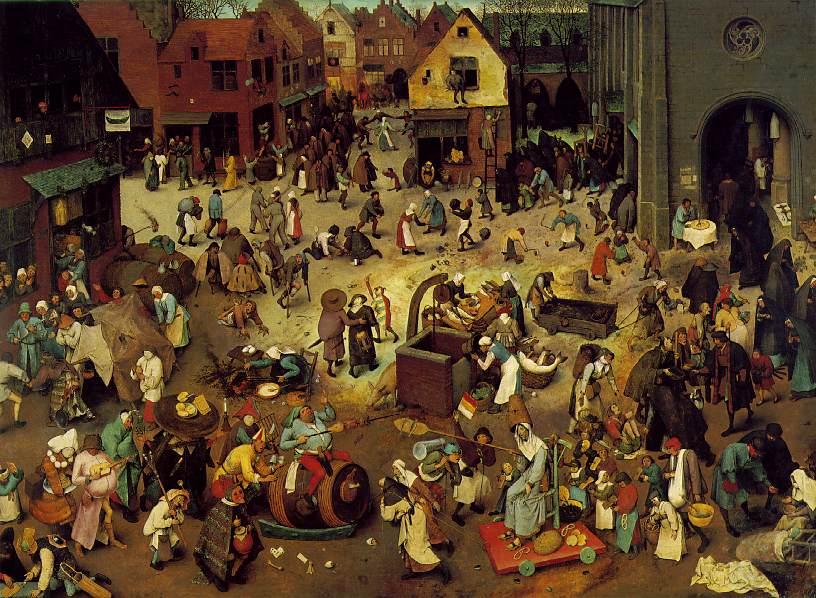
Bruegel. The Fight Between Carnival and Lent.---depicts ritual preztel usage. (Pretzel's were associated with Lent and were given as alms to the poor.) Read More:http://brooklynometry.blogspot.com/2008/04/pretzel-time-line.html
ADDENDUM:
“When I go, I will be naked. So what do I do?” he asks rhetorically. “Do I give the companies to my children? That’s a responsibility. Do I leave them 90 or 98 per cent of my wealth? Absurd. If I sell, who would buy – a foreign company? So, do I give it all away to Mexico instead?”
Famed for reading a balance sheet like no one else, Mr Slim performs a quick mental calculation. “After tax, that would be $300 for every Mexican. It’s mere charity.”…
Rather than charity, Mr Slim believes the solution to Mexico’s problems, and his own conundrum, is more investment, especially among small businesses as they create the most jobs. It is an apparently contradictory claim given criticisms that his own market dominance squashes smaller players. “Human beings are contradictory,” he shrugs. Read More:http://www.economicpolicyjournal.com/2011/06/worlds-richest-man-on-poverty-industry.html
Read More:http://www.theatlantic.com/national/archive/2010/06/fat-times-for-the-poverty-industry/57906/#
——————————
Veblen argues that giving, especially bequests6 can be considered ‘honorific
waste.’7 By using money and resources to further your own name, or that of a family
member, it is a publicized way to demonstrate the ‘superiority of your soul.’ The benefit
to others can be seen as merely a bonus. “Nonetheless, motivation is not simply an
academic question; it goes to the heart of any definition of charity, philanthropy, or
civility.” (Friedman and McGarvie 2003, 361) By labeling giving such as this ‘honorific
waste,’ Veblen is questioning the cultural motives behind the benevolence. His idea of
the ‘Cultural Prism,’ motivations being more important than the outcome can be applied
here. Read More:http://repository.tamu.edu/bitstream/handle/1969.1/ETD-TAMU-1616/ANDERSON-THESIS.pdf?sequence=1
The





 COMMENTS
COMMENTS